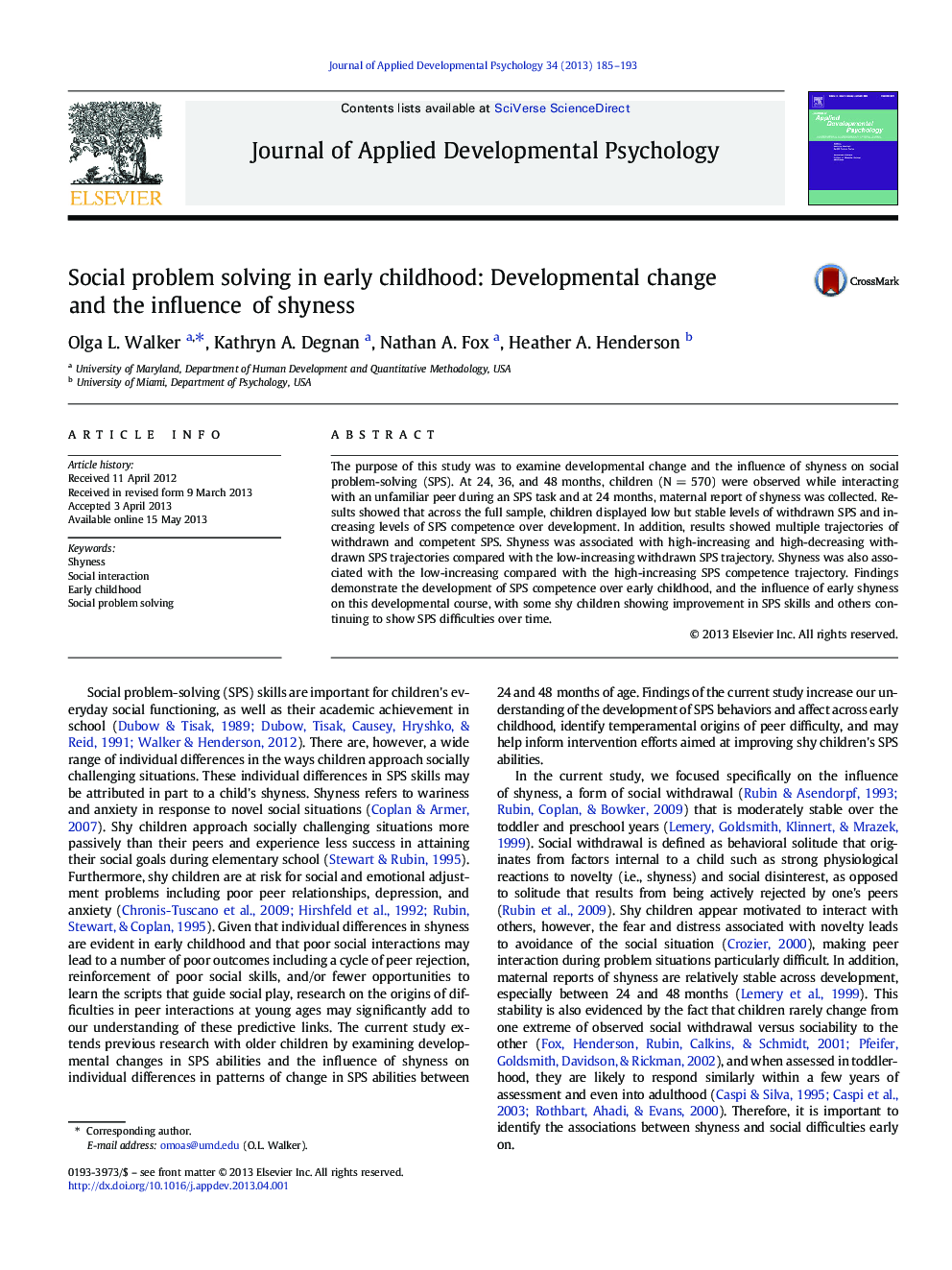| Article ID | Journal | Published Year | Pages | File Type |
|---|---|---|---|---|
| 359664 | Journal of Applied Developmental Psychology | 2013 | 9 Pages |
Abstract
The purpose of this study was to examine developmental change and the influence of shyness on social problem-solving (SPS). At 24, 36, and 48 months, children (N = 570) were observed while interacting with an unfamiliar peer during an SPS task and at 24 months, maternal report of shyness was collected. Results showed that across the full sample, children displayed low but stable levels of withdrawn SPS and increasing levels of SPS competence over development. In addition, results showed multiple trajectories of withdrawn and competent SPS. Shyness was associated with high-increasing and high-decreasing withdrawn SPS trajectories compared with the low-increasing withdrawn SPS trajectory. Shyness was also associated with the low-increasing compared with the high-increasing SPS competence trajectory. Findings demonstrate the development of SPS competence over early childhood, and the influence of early shyness on this developmental course, with some shy children showing improvement in SPS skills and others continuing to show SPS difficulties over time.
Related Topics
Social Sciences and Humanities
Psychology
Applied Psychology
Authors
Olga L. Walker, Kathryn A. Degnan, Nathan A. Fox, Heather A. Henderson,
